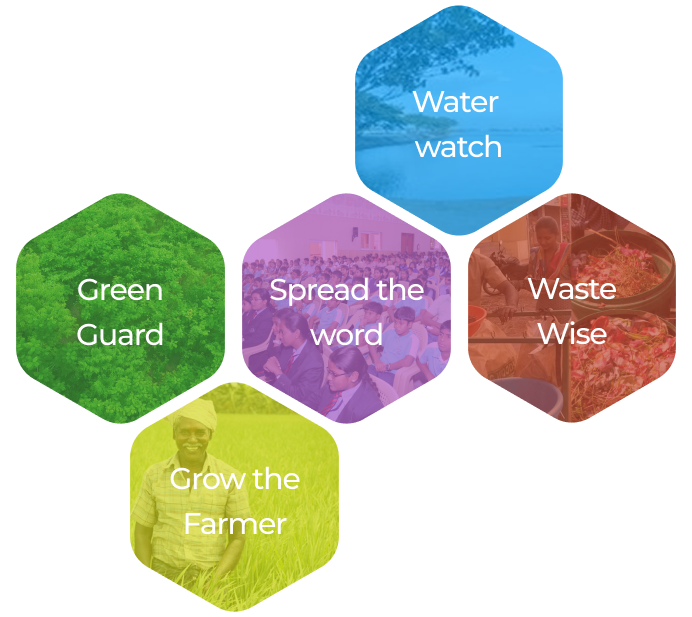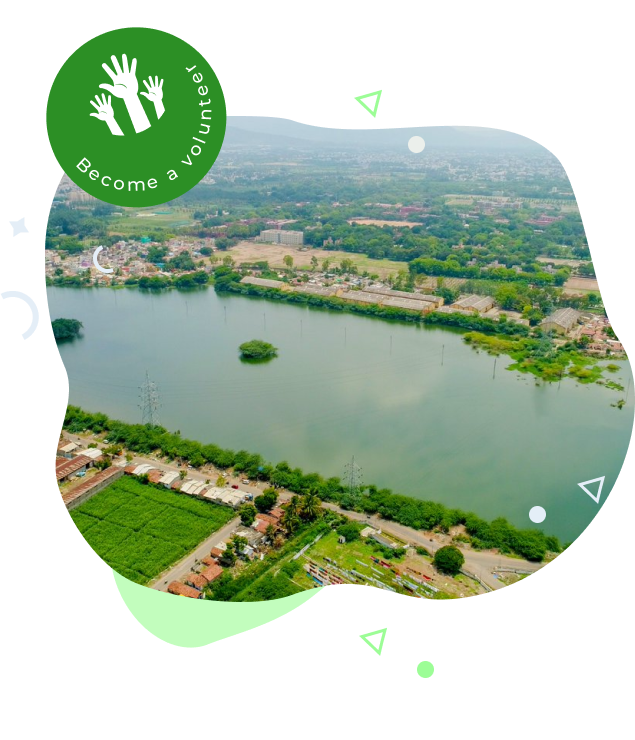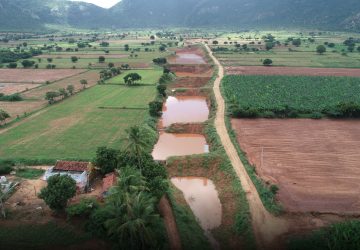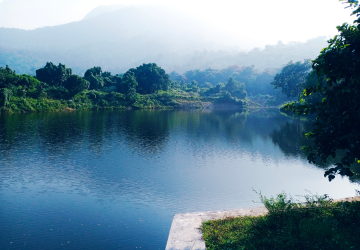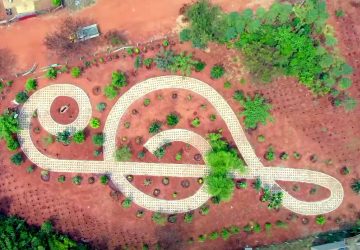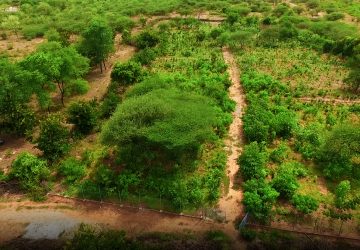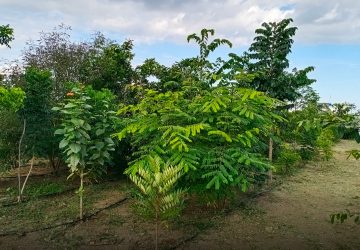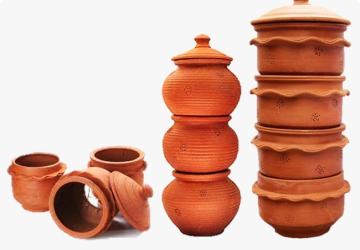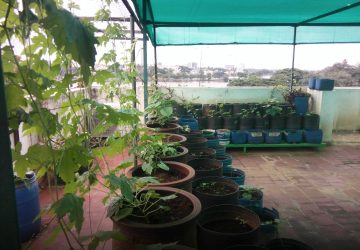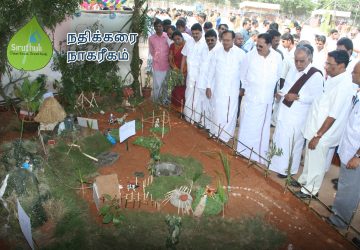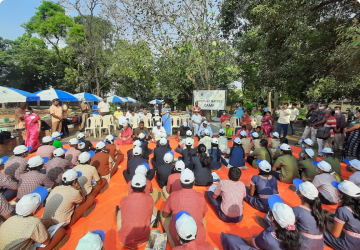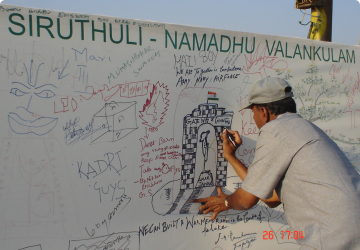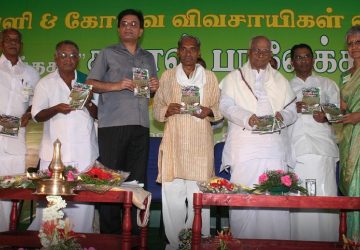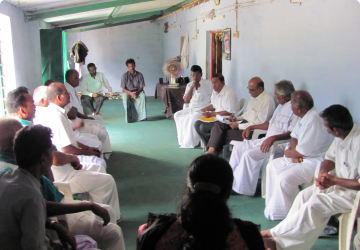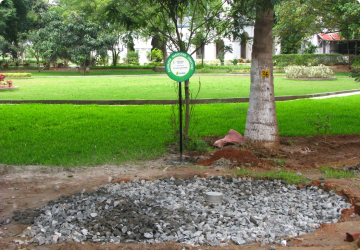
Rain Water Harvesting
Water supply has two primary sources, rivers, and groundwater. The rivers are affected
due to the massive urbanization, pollution, waste dumping and poor management.
Siruthuli has been involved in increasing the water supply by addressing both the
principal sources: restoring the water bodies and also through groundwater recharge.
Keeping in mind the fact that decentralized water harvesting and groundwater
recharging are effective solutions to water scarcity and the ecological crisis perpetuated
by the growing problems of groundwater depletion, harvesting rainwater initiatives were
taken up by Siruthuli. A geo-hydrological study was carried out in the year 2004, the
result of which suggested having a minimum of 2000 nos. of RWH structures across the
city.
Moreover, since Coimbatore has hard rock strata , the groundwater table can be improved by directly feeding the aquifers using recharge structures with deep borewells. Accordingly, with the assistance of the Coimbatore Corporation 250 structures were constructed and rejuvenated a few years later with the help of the Rotary Clubs of Coimbatore. 365 structures were completed with financial assistance from the Ministry of Water Resources, New Delhi based on the efficacy of the project. Further, 65 structures were completed through the corporate bodies which came forward to construct structures to harvest the rainwater falling on their premises. Another example where corporates, institutions, individuals, government and several stakeholders joined together to spread awareness to ensure Coimbatore did not run out of water. Studies show that with 100 mm rainfall on 1 hectare of land, 1 million litres of water can be harvested. Siruthuli has been engaged in the construction of both open structures and roadside structures to recharge the groundwater in several locations across the city.
In areas where water logging was prevalent after rainfall, the roadside structures built by Siruthuli not only helped drain the water but also used the run-off water for recharging the aquifers. Over the years, observation wells have been marked by Siruthuli in different zones and studies conducted. The failed borewells and open wells started yielding enough water for the farmers and industrialists and benefitted the community. Due to urbanisation and lack of space, Siruthuli also encourages roof-top rainwater harvesting techniques. These structures help the user become self-sufficient in water supply, providing easy use and implementation techniques to save not only water but also the environment. A recent report published by MoWR, New Delhi regarding a study that was conducted at 1161 locations in TamilNadu for 10 years from 2001 –2011 reveals that the groundwater levels of Coimbatore District have been raised by 13.92 meters, which is a great sign of the success of the project!!
Moreover, since Coimbatore has hard rock strata , the groundwater table can be improved by directly feeding the aquifers using recharge structures with deep borewells. Accordingly, with the assistance of the Coimbatore Corporation 250 structures were constructed and rejuvenated a few years later with the help of the Rotary Clubs of Coimbatore. 365 structures were completed with financial assistance from the Ministry of Water Resources, New Delhi based on the efficacy of the project. Further, 65 structures were completed through the corporate bodies which came forward to construct structures to harvest the rainwater falling on their premises. Another example where corporates, institutions, individuals, government and several stakeholders joined together to spread awareness to ensure Coimbatore did not run out of water. Studies show that with 100 mm rainfall on 1 hectare of land, 1 million litres of water can be harvested. Siruthuli has been engaged in the construction of both open structures and roadside structures to recharge the groundwater in several locations across the city.
In areas where water logging was prevalent after rainfall, the roadside structures built by Siruthuli not only helped drain the water but also used the run-off water for recharging the aquifers. Over the years, observation wells have been marked by Siruthuli in different zones and studies conducted. The failed borewells and open wells started yielding enough water for the farmers and industrialists and benefitted the community. Due to urbanisation and lack of space, Siruthuli also encourages roof-top rainwater harvesting techniques. These structures help the user become self-sufficient in water supply, providing easy use and implementation techniques to save not only water but also the environment. A recent report published by MoWR, New Delhi regarding a study that was conducted at 1161 locations in TamilNadu for 10 years from 2001 –2011 reveals that the groundwater levels of Coimbatore District have been raised by 13.92 meters, which is a great sign of the success of the project!!
